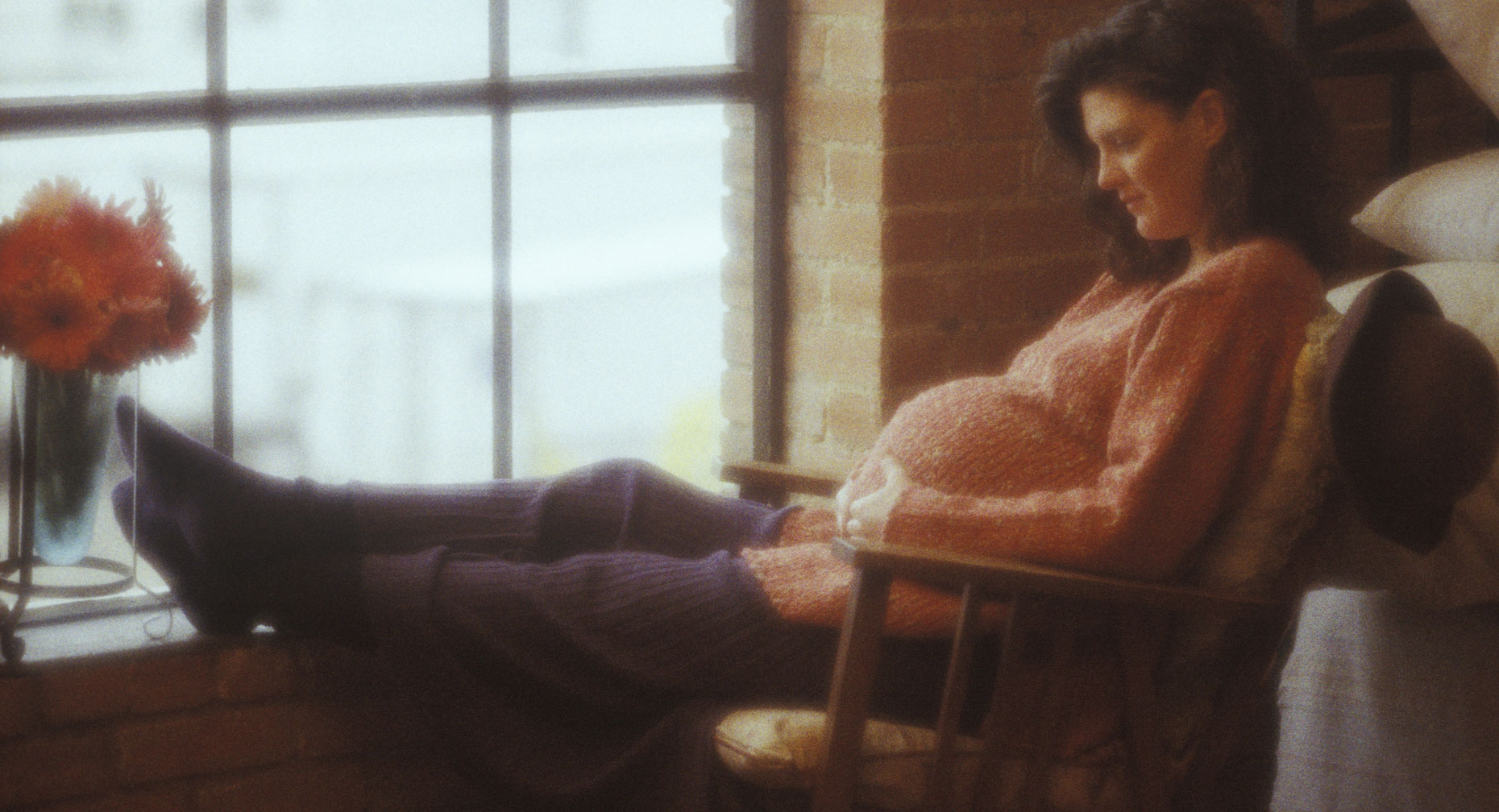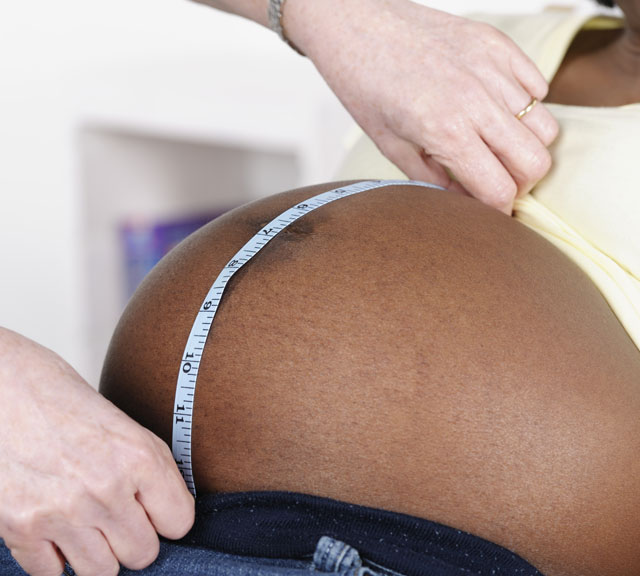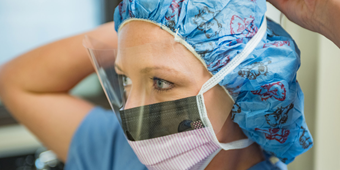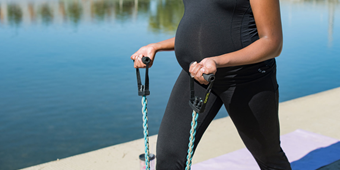10 Weird and Wacky Things That Happen to Your Pregnant Body

Find Your Perfect Match
Answer a few questions and we'll provide you with a list of primary care providers that best fit your needs.
At more than one point in your pregnancy, you might find yourself exclaiming, “Whoa! What’s happening here?” And you’re probably not talking about your burgeoning baby bump.
“Most women experience mild swelling in the face, hands and ankles at some point in their pregnancy, especially during the last trimester.”
No, that gasp of fear and wonderment probably comes from discovering the side effects of stretching skin, increasing weight and changing hormones. Here’s what to expect and how to deal with it. Remember, you’re about to give birth to the most beautiful, talented and intelligent human being in the world, so it’s all worth it, right?
1. Swelling
“Most women experience mild swelling in the face, hands and ankles at some point in their pregnancy, especially during the last trimester,” explains Perinatal Partners physician David McKenna, MD.
Dr. McKenna recommends these tips to help ease this symptom:
- Drink eight to 10 glasses of fluids daily
- Avoid caffeine and salty foods
- Rest and elevate your feet
- Ask your doctor about support hose
- Get in the water. Immersion in a tub or swimming in a pool will relieve the effects of gravity on your body — and may even decrease the swelling. ician David McKenna, MD.
If your hands or feet swell suddenly or you rapidly gain weight, contact your health care provider immediately. It may be preeclampsia, a potentially life-threatening condition that requires immediate medical attention.
2. Varicose and spider veins
Spider veins are tiny, red veins that appear on the face, neck and arms. They are caused by hormonal changes and increased blood volume during pregnancy. The redness should fade after the baby is born.
Varicose veins occur because the veins in your lower body are being compressed by the heavier uterus. Normally, veins have one-way valves to help blood flow toward the heart. Pressure on, or weakening of, these valves causes blood to back up and pool in the veins. This causes them to enlarge and swell. Varicose veins can also be found on the vulva, vagina and rectum (hemorrhoids). Usually, varicose veins are just a cosmetic problem and clear up after delivery.
3. Hemorrhoids
Hemorrhoids are swollen, twisted veins, just like varicose veins. They can be internal, forming inside the rectum, or external, located around the anal opening. Internal hemorrhoids can sometimes bulge out through the anal opening. The most common symptoms are pain, itching and bright red blood passed with a bowel movement.
“Pregnancy hemorrhoids usually get better after birth,” says Dr. McKenna. “Still, there are some things you can do to feel better.” He recommends the following:
- To relieve pain, sit in a tub or sitz bath several times a day in plain, warm water for about 10 minutes at a time. When you use a tub, don’t fill it all the way. Just put in enough warm water to sit in. That will direct blood flow to your rectum.
- Use ice packs or cold compresses to reduce swelling.
- Ask your doctor about creams or other medications, such as stool softeners, that are safe to use during pregnancy.
- Include lots of fiber and fluids in your diet to prevent constipation.
- Try not to strain with bowel movements, and avoid sitting for a long time.
- Perform Kegel exercises regularly. This involves squeezing and relaxing the muscles in your vaginal and rectal area.
4. Urinary incontinence
During pregnancy, the weight of the baby causes your uterus to bear down on the bladder, urethra and pelvic floor muscles. This can make you urinate more often, and/or “leak” when you sneeze, cough or laugh. Make sure to do Kegel exercises to strengthen the pelvic floor, and take frequent bathroom breaks.
5. Heartburn
Heartburn (gastroesophageal reflux) occurs when acidic stomach juices or food and fluids back up into the esophagus (the tube between your mouth and your stomach.) Although the exact reasons heartburn occurs during pregnancy aren’t clear, most experts believe that pregnancy hormones, particularly progesterone, play a role. Hormones cause relaxation of the esophageal sphincter (the tight, circular band of muscle at the top of the stomach). This allows partially digested food and stomach acids to back up into the esophagus. In addition, progesterone slows digestion, which keeps food in the stomach longer. Upward pressure from the growing uterus also may play a role.
Here are a few common-sense suggestions to help ward off heartburn:
- Avoid spicy, fatty and greasy foods. Many people recommend avoiding citrus and chocolate, as well.
- Eat multiple, small meals spread throughout the day, instead of three big meals.
- Try elevating the head of your bed by several inches, and wait a while after eating before lying down.
Some women find that it’s better to drink fluids between meals, rather than with a meal. This can increase the contents in the stomach.
If your symptoms do not improve after these changes are in place, talk with your doctor about over-the-counter medicines. “Although most are considered safe in pregnancy, as with all medicines, these should be avoided in the first trimester,” explains Dr. McKenna.
6. Stretch marks
These pink, red or brownish marks can happen anywhere there is rapid growth and stretching of the skin, especially on the breasts, stomach, buttocks and thighs. “Don’t be misled by ads for lotions and creams that tout stretch mark removal or prevention,” says Dr. McKenna. “There are no proven remedies.” The marks will fade over time and moisturizers can reduce irritation.
7. Acne
Unfortunately, the increased oil production that can give you that beautiful pregnancy “glow” can also cause acne. While it’s important to keep the affected area clean and oil-free, heed these warnings:
- The prescription anti-acne drugs isotretinoin and tretinoin can cause birth defects and should never be used during pregnancy.
- Abrasive scrubs or exfoliants can irritate sensitive pregnancy skin.
- Generally, most over-the-counter acne cleansers and treatments are safe to use in pregnancy, but you should check with your doctor first. The good news is that acne typically goes away shortly after delivery.
8. Dark spots
A natural increase in melanin during pregnancy can cause areas of darkened skin, especially on the face. To minimize this “mask of pregnancy,” called chloasma, be sure to wear sunscreen or a hat while in the sun, and decrease the amount of time you spend in the sun. Most of these areas fade within a few months after giving birth.
9. Itchy skin
Itchy skin is common, especially in the winter. Some women develop a rash or itchy bumps that are caused by a variety of conditions. Although most are not dangerous, you should always ask your doctor about any itching problems.
10. Hair growth
Pregnancy hormones can increase hair growth. On the upside, many women notice that their hair is thicker and looks healthier. On the down side, sometimes those hormones cause hair to grow in unwanted places, like on the face or neck. Talk with your healthcare provider if you notice excessive hair growth in new places, advises Dr. McKenna. Most hair-removal methods, including waxing, tweezing and shaving, are safe in pregnancy. Things should return to normal about six months after giving birth.
Find Your Perfect Match
Answer a few questions and we'll provide you with a list of primary care providers that best fit your needs.
Source: Office on Women’s Health, U.S. Department of Health and Human Services





